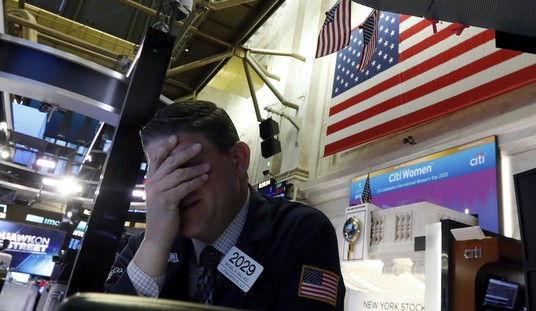Something is terribly wrong.
Used to be, I could safely attend the annual Delta show at the Arkansas Arts Center here in Little Rock with serene confidence that I would never agree with the judge's picks. It gave me the feeling, hollow as it might be, that I marched to a different drummer from the cognoscenti's. For my taste in such things has long been irreparably bourgeois -- middle-class, middlebrow, middlin' in general. Even verging on the sentimental, and maybe not just verging.
Andrew Wyeth's "Christina's World," Edward Hopper's "Early Sunday Morning," Charles Demuth's "I Saw the Figure Five in Gold," those are my unfashionably popular speed. Their light, their sense of a remembered past, their almost nostalgic quality, and maybe not almost ... I'm a sucker for it all, predictably rear-guard at avant-garde shows.
But I left this year's Delta show shaken.
The big winner was Mark Lewis's "Peoria Avenue #7," my own favorite. This year's juror, Monica Bowman, runs a gallery called The Butcher's Daughter (talk about bourgeois) in Ferndale, Mich., a Detroit suburb. Her pick could have been a scene along almost any interurban line -- the MTA in Boston, the Long Island Railway out of Penn Station in New York, the L in Chicago once it gets out of the Loop and glides into commuter-dom.
Call it John Cheever and J.D. Salinger country. And mine. For exactly one year to the day -- October 1, 1966, to October 1, 1967. That's when I was the junior editorial writer for the old Chicago Daily News, and took the train out of Union Station to suburban Glenview every weekday, newspaper and briefcase in hand -- another indistinguishable member of the Mad Men generation blending into The Lonely Crowd.
The older you get, the more you may want things to stay not as they are but as they used to be, at least in your not-always-reliable memory. Problem is, I felt that way when I was still young. Call it a case of premature aging. Or just arrested, even reverse, development.
Recommended
Arrested time, that's what "Peoria Avenue #7" tries to capture. The same thing the impressionist Bonnard was after in "Marthe Entering the Room." And found. As he put it, "What I am after is the first impression -- I want to show all one sees on first entering the room -- what my eye takes in at first glance."
It's a kind of sanctification of the ordinary. Marthe will forever enter that room, and we cannot turn our eyes away. Call it a stop-time moment. It may be just a passing scene that the harried commuter would never notice, lost as he is in the transient. But it stops us cold once it's on canvas. Or, in Mark Lewis' case, on graphite and paper, and on a big scale -- 60 by 84 inches. So you can study the ordinary diner pictured there, the ordinary girl, the ordinary parked car and railroad tracks under the ordinary sky, none of which are ordinary once the artist has caught them. And us.
The difference between a place and what Walker Percy used to call a no-place may be who's looking at it, who is able to see it. And depict it. Mark Lewis can.
Walker Percy may have written about New Orleans, to which there is no end of writing about, but he chose to live in suburban Covington, La. Maybe his eyes, his mind, his sensibility needed a rest from the picturesque, the distinctive, the New Orleanian. Yet you know that wherever Walker Percy was must have been distinctive by virtue of his being there, that it had to have a special light, like the sun setting over the Delta.
Then there are those works you know, from your first glance, have nothing ordinary about them. Anything by Carroll Cloar, for example, always looks covered in layers of time.
There are no harried urban commuters when you're taking U.S. 65 through the Delta to connect with 82 across The River in Mississippi. Every abandoned sharecropper shack could be a Carrol Cloar.
The whole Delta show had a rare attraction about it this year, maybe because it seemed free of the usual artspeak that so often gets in the way of the art.
This year's prize works spoke for themselves, and with the kind of economy that approaches elegance. It's a style that goes back to the era of the Art Deco, the representational art of the 1930s and '40s with its sculpted touch, as in the Blue Eagle of the New Deal's NRA ("We do our part"). This year's Delta show had the same populist sensibility.
If there was a germ of American fascism in that style, it also had a power that American abstraction never did. It is the spirit of an older liberalism, as in Carl Sandburg's "The People Yes" -- a liberalism that still allowed for individual differences and a wide range of idiosyncratic opinions, even dissent. Rather than the faceless "collective action" our current president calls for when he is being most himself, as in his latest inaugural address.
This year's Delta show captures the ordinary feel of life with an extraordinary sensitivity. It's an art.

























Join the conversation as a VIP Member